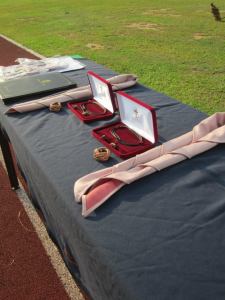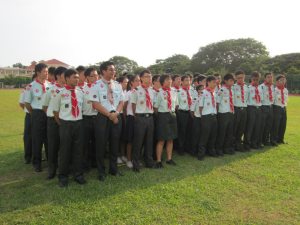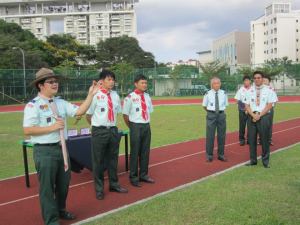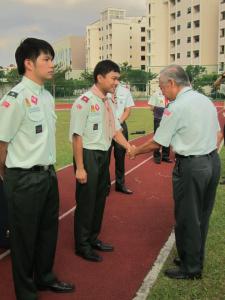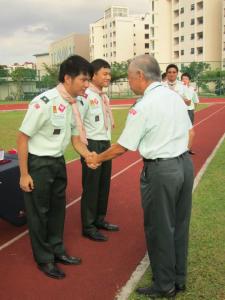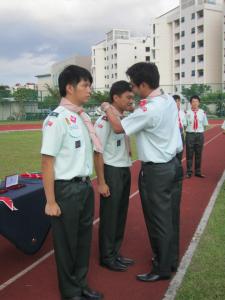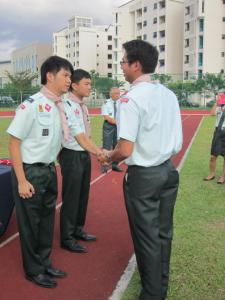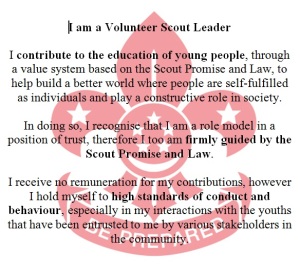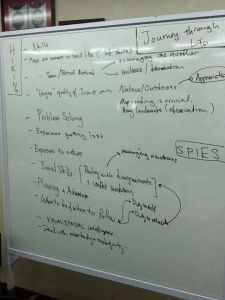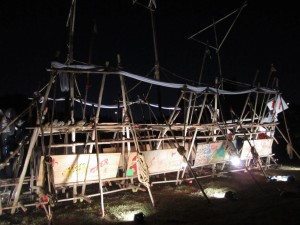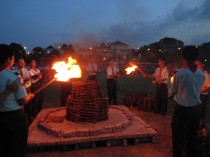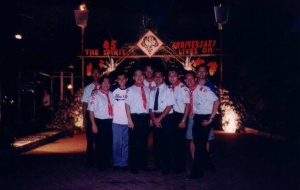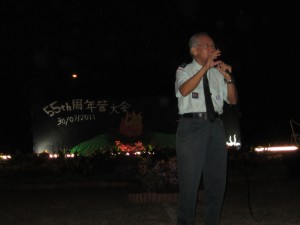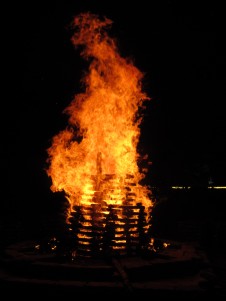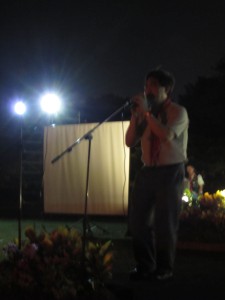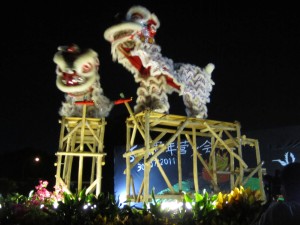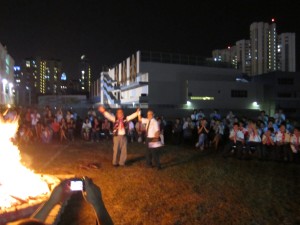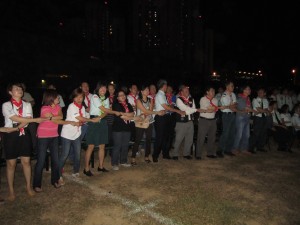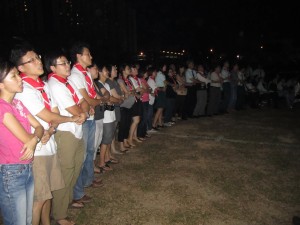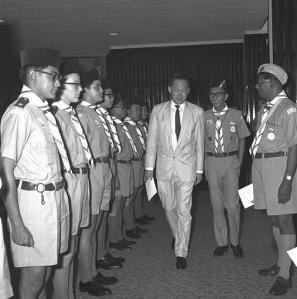
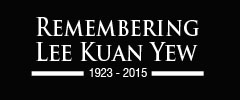 Scouts in Singapore mourn the loss of Singapore’s founding Prime Minister Mr Lee Kuan Yew. Mr Lee was a Scout in the 32nd Singapore Scout Troop, which later became the 01 Raffles Scout Group. He was Singapore’s first Prime Minister, serving from 1959 to 1990 and continued contributing to Singapore in various official capacities until he passed away on 23 March 2015.
Scouts in Singapore mourn the loss of Singapore’s founding Prime Minister Mr Lee Kuan Yew. Mr Lee was a Scout in the 32nd Singapore Scout Troop, which later became the 01 Raffles Scout Group. He was Singapore’s first Prime Minister, serving from 1959 to 1990 and continued contributing to Singapore in various official capacities until he passed away on 23 March 2015.
As a Scouting tribute, here are some lessons we can learn from how he embodied the Scouting Spirit through his leadership and his life.
A Tribute to Lee Kuan Yew – Lessons on a Scout’s Honour
1. A Scout is to be trusted
Following the Bukit Ho Swee fire in 1961, 16,000 were made homeless and more than 2,200 attap houses were destroyed. Mr Lee Kuan Yew promised that in nine months the displaced residents would all have new flats to live in. And he delivered. This led people to say “at least this Government can keep its promise.”
Mr Lee also epitomised incorruptibility and spent his lifetime building a clean and corruption-free government which is looked upon by many other countries today. Integrity was made one of the core values of the Civil Service and this generated trust between the people of Singapore and their government.
2. A Scout is loyal
To see the extent of his loyalty, one need not look far. To his beloved wife after a stroke, he said: ‘We have been together for most of our lives. You cannot leave me alone now. I will make your life worth living in spite of your physical handicap.’
She said: ‘That is a big promise.’
He replied: ‘Have I ever let you down?
Later, when she could no longer communicate, through all that time,
Mr Lee took care of her. As a young lawyer with a bright future, Mr Lee could have chosen a very different career path. However, his loyalty to his country and calling to duty prompted him to take on the arduous and momentous task of fighting for Singapore’s independence and survival in our early years of nationhood.
3. A Scout makes friends, establishes and maintains harmonious relations
In 1967, Mr Lee began a friendship with Dr Henry Kissinger, who later became the US Secretary of State. This was the beginning of one of the world’s most high powered and enduring friendships. Said Dr Kissinger, “He was not a man of many sentimental words. And he nearly always spoke of substantive matters. But one could sense his attachment. A conversation with Lee, whose life was devoted to service and who spent so much of his time on joint explorations, was a vote of confidence that sustained one’s sense of purpose.
In addition, Mr Lee was a mentor and friend to numerous statesmen and leaders from all around the world and was deeply respected beyond the shores of Singapore.
4. A Scout is disciplined and considerate
Mr Lee led a life of discipline. To see this one need only examine the tributes written by Mr Heng Swee Keat, now Minister for Education, who was Mr Lee’s Principal Private Secretary earlier in his life, and Mr Abdullah Tarmugi, who served as Speaker of Parliament.
“In his days as PM, Mr Lee’s average bedtime was three-thirty in the morning. As Senior Minister and Minister Mentor, he went to sleep after two in the morning. Deep into the night, while the rest of Singapore slept, it was common for Mr Lee to be in full work mode.” – Mr Heng Swee Keat, Minister for Education
“Lee Kuan Yew was someone who even if he didn’t come for one afternoon, he would write me a note. In fact, he was the only one who did that. To his credit, he made sure he followed the rules, you couldn’t fault him.” – Mr Abdullah Tarmugi, former Speaker of Parliament
5. A Scout has courage in all difficulties
“Even from my sick bed, even if you are going to lower me into the grave and I feel something is going wrong, I will get up.” – National Day Rally 1988
Mr Lee made the above declaration in his National Day Rally Speech in 1988.
He had a never-say-die attitude and showed courage throughout all the difficult and challenging times over his many years as PM. In fact, it could have been this never-say-die spirit that led us to hope beyond hope that he could join us at SG50 NDP.
Scout Motto – Be Prepared…
Mr Lee showed tremendous foresight and vision in predicting and preparing for the numerous challenges that Singapore faced in her journey to nationhood. Singapore, under his leadership, was prepared for all conceivable hurdles and always in anticipation of future probabilities. Issues like water supply, education, defence and economic development were addressed and showed the far-sightedness of our pioneer leaders. Mr Lee had long prepared Singapore for a future when he would no longer be around. Today we reap the benefits of what was sowed.
Scout Promise – On my honour, I promise that I will do my best…
He lived his life by the Scout Promise, and after a life’s work he commented, “All I can say is, I did my best. This was the job I undertook, I did my best and I could not have done more in the circumstances. What people think of it, I have to leave to them. It is of no great consequence. What is of consequence is, I did my best.”
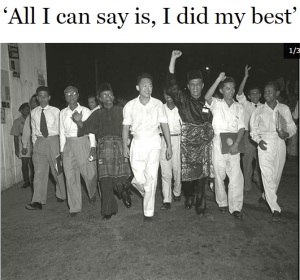
Leaving the world a little better…
And at the end of the day, you could undoubtedly say that he lived up to the exhortations in BP’s last message, having left Singapore better than when he found it.
Scouts in Singapore mourn your death, and aspire to live by the values that you have exemplified in your life.
Rest in Peace Sir. At the end of your life’s journey, along your chosen way, in all you did, you have indeed shown us true courage in being the best that you can be. 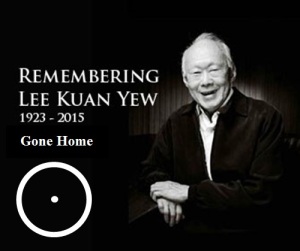 Photo Credits:
Photo Credits:
National Archives Singapore
Today Online (23/3/2015)
